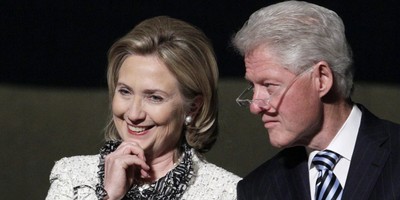Wall Street was more than willing to endure the Federal Reserve Board's announcement Wednesday that it would end the monetary equivalence of "crack cocaine" by ending its longstanding "QE" program designed to pump liquidity into the economy. That's because they avoided the pain of going "cold turkey" by indicating that it would be a "considerable" time period before they would begin raising interest rates.
While the well-balanced announcement brought a sigh of relief among the nation's financial wizards, the basis for the decisions raises plenty of questions for the everyday working man and woman.
First, Fed Chair Janet Yellen noted that there appears to be "significant under-utilization" of the labor force. For the average Joe, that can be translated into "although the White House would love for you to believe that unemployment is under control, things really aren't that great." Those of us who work in the real world intuitively know that; since the start of the Great Recession, many of our friends, family members or onetime co-workers have been relegated to part-time work, reduced salaries or no work at all. Raises for many have been minimal. And it seems like everyone we know has some young person saddled with college debt and working for low wages.
If none of that rings true to you, it's probably because you work on Wall Street.
The second reason for the Fed's decision to keep interest rates at near-to-nothing levels is inflation. The Fed believes that our current rate of inflation is too low, and thus raising interest rates would be unjustified.
And in part, that is true. If one looks at the variables considered in determining our official rate of inflation, things seem rather tame.
But if you shop at a grocery store or pay college tuition, you probably feel like prices are rising through the roof. If you don't feel that pain, then once again, you likely work on Wall Street.
Recommended
To be fair, Ms. Yellen's leadership has not been bad in her early stage as chairman of the Federal Reserve. She has managed to prepare the markets for the end of seemingly endless injections of dollars into our economy while keeping an oh-so pampered investor class happy with the notion that the cost of borrowing funds, for those who are creditworthy, will remain cheap.
The result has been a nation that appears more optimistic about the economy than in recent years and corporations that, for the most part, continue to perform miracles with stronger profits quarter after quarter.
But there are serious questions that those of us in the real world should start asking now, long before a decision is made to raise interest rates.
First, what happened to that great recovery in the housing market? Yes, things are better, but it appears that the ability to qualify for even the cheapest of loans is difficult for many Americans. Rental properties are booming, and the current generation of Millennials, often beaten down by college loans and uninspiring starting salaries, are more interested in shedding themselves of past debt and having a little spare change than in taking on a mortgage. If the housing industry is still tepid with low interest rates, what will happen when they ultimately are raised?
Then there is the issue of the consumer. Yes, sentiment has improved, but one would hardly describe most Americans as ready to go on a spending spree. This summer, people didn't go to movies (admittedly most of them stunk), and travel was kept alive only because energy prices have finally stabilized. But with companies forced to squeeze the last dime out of everyone, how long will even a reasonable level of confidence continue? Airfares rise continuously, either in direct price or in incremental costs such as baggage fees, a fee for leg room and probably a coming surcharge for oxygen. And they are simply one example in a sea of corporations trying to meet analyst expectations for quarterly profits.
And therein lies the problem. If the people on Wall Street are the only ones, to quote a recent article, who are "partying like it's 1999" now, where will the rest of us all be when even their brass band stops playing?
























Join the conversation as a VIP Member